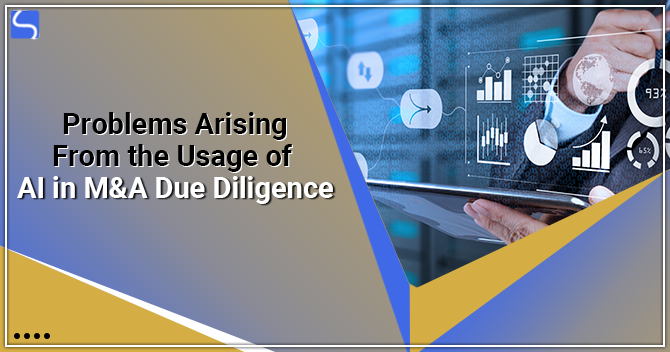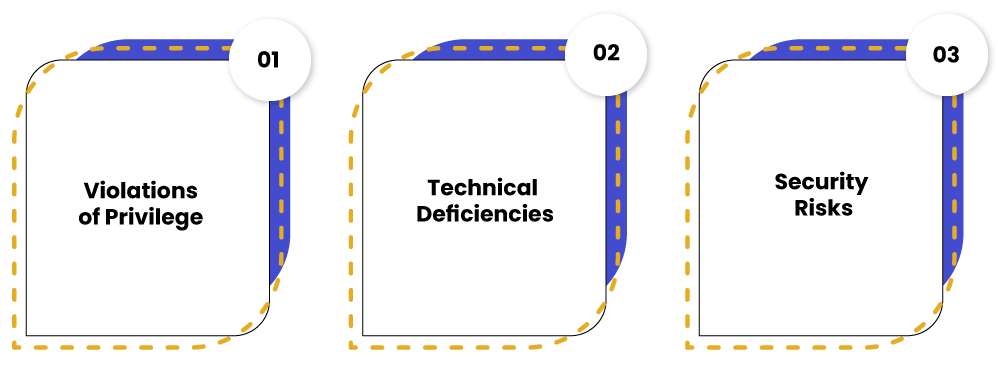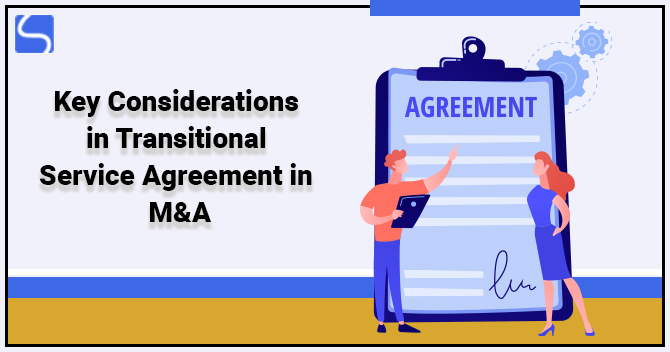Examine the Problems Arising From the Usage of AI in M&A Due Diligence

Karan Singh | Updated: Aug 20, 2021 | Category: Mergers and Acquisitions
In the earlier few decades, Mergers and Acquisitions have continuously seen a rising trend. Mergers and Acquisitions (M&A) is no longer only limited to big firms, but small businesses are also increasingly getting involved in M&A as a means to increase access to new products & markets and capitalise on economies scale. Moreover, the Covid-19 pandemic also couldn’t affect Mergers and Acquisitions deals much. As per the PWC report, the M&A deals are anticipated to remain robust in the next half of the year. It also declares that the deals are all set to outpace the last year’s deal size. In this write-up, we will talk about the usage of AI in M&A Due Diligence.
AI or Artificial Intelligence is highly adopted by many big firms around the world for mining documents, creating contracts, and reviewing, looking for red flags & helping in Due Diligence, but not limited to Mergers and Acquisitions transactions.
In the last decades, the process of Due Diligence in Mergers and Acquisitions transactions has played a vital role in the transaction success. This process can either break or make an M&A deal. The combination of Artificial Intelligence and M&A has made this process very time effective and has aided in furnishing cost-effective services to the customer. It has automated the manual & complicated process of examining thousands of documents.
Table of Contents
What is the Meaning of Due Diligence and Artificial Intelligence (AI)?
Before we discuss the problems arising from the usage of AI in M&A Due Diligence, let’s first understand the meaning of Due Diligence and Artificial Intelligence.
Due Diligence
To decide is a business or an investment purchase would prove cost-effective in the future or not, Due Diligence is bringing out as it discloses any possible liabilities or risks. Due Diligence is a process that engages examining the documents of the proposed business and interviewing the business employees. The Due Diligence process ends when an investor or a business is interested in investing or buying in the target business.
Due Diligence investigation seeks information regarding the business to make sure that purchase or investment would be helpful. The primary objective of this process is to disclose all vital facts, risks, and any possible liabilities. Once the facts are examined & gathered, an informed decision can be made.
Artificial Intelligence (AI)
AI is an enormous concept that is used to explain a technology that allows machines to execute tasks that require a human resource in everyday situations. To accomplish this, Artificial Intelligence requires software development through which a machine can copy the various intricacies of the human thinking process.
There are two different types of Artificial Intelligence, and you can check the same below:
- General AI : It is more advanced & is programmed such that it can take actions in conditions that are different from the possibilities already programmed in their database by executing more complicated reasoning. Hence, General Artificial Intelligence enables a machine to reply to predefined reply triggers and perform in situations that require high order thinking, which comprises innovation, managing, and creativity.
- Narrow AI : It refers to the capacity of a machine to perform narrowly determined tasks by applying a restricted artificial cognitive function. An example of this AI is the virtual assistant Siri. It has the capabilities of speech recognition & browsing the web in reply to queries.
Importance of Due Diligence Process in M&A
M&A is a tool used for various strategic business reasons like diversifying products or services, gaining a competitive benefit in the market, raising capabilities & reducing costs, etc. To accomplish such strategic objectives via a Mergers and Acquisitions deal, a proper Due Diligence investigation is the most vital part of this transaction.
The process of Due Diligence is an investigation process in which the acquiring company’s lawyers review numerous documents of the target company with the primary objective of recognising any liabilities, opportunities or risks acquiring or combining with the target company.
Due Diligence can promote such as transaction, avoid it or even ruin it, as it has been observed in thousands of Mergers and Acquisitions deals. The Due Diligence process is significant because it allows the stakeholders in understanding the synergies & the possible scalability of the business after the Merger or Acquisition.
AI and Mergers & Acquisitions – AI in M&A Due Diligence
In the latest research, the average time in finalising an M&A transaction has increased by more than 30% over the past decade. One of the most vital issues with Mergers and Acquisitions deals are Due Diligence which involved examining several documents, making it a time-consuming process. This is not only a manual & difficult task for lawyers buts also requires highly experienced and skilled staff to repetitive, lower-value responsibilities when they could instead be contributing to other vital tasks.
But, law firms have been progressively adopting AI, which has altered the whole situation. With the use of AI in M&A Due Diligence, it is rapidly possible for lawyers to examine over three thousand documents within an hour, which previous was around 50 to 100 documents per hour. This has not only increased the efficiency of the process but also allowed lawyers to furnish the same work at a much lower cost compared to the projects’ cost, where the documents were examined manually.
Artificial Intelligence technology is nowhere near complicated enough to replace human resources, but it can still add some value. The process of M&A Due Diligence helps in automatically examining & gathering legal documents, redacting owner details and confidential HR details, etc.
Problems Arising From the Usage of AI in M&A Due Diligence
While Artificial Intelligence is deemed a good thing in the Due Diligence process, it’s not without a set of risks. Following are some important problems arising from the usage of AI in M&A Due Diligence:

- Violations of Privilege: In various authorities, the review of Artificial Intelligence of definite documents could amount to the violation of attorney-customer opportunity. This risk is of substantial significance in the case of cross border mergers and Acquisitions deals.
Artificial Intelligence also poses definite questions like who is to be blamed in the case of mistaken document review. In the case of any missing clause, wrong references or price predictions, all risk claims. In such a condition, a customer will always look to their lawyers. This will require law firms to have agreements with the 3rd party tech company to tolerate the liability. Further, does the tech company have substantial resources & insurance to reimburse for the losses?
Due Diligence requires widespread review & examination of documents. An overreliance on Artificial Intelligence leads to conditions wherein factual information is missed in the extraction process of information or details from the documentation. This will not only lead to bad quality results but have grave results & risk clients to vast losses.
2. Technical Deficiencies: If the documents are not highly unmistakable & standardise, failure of insufficient machine learning or algorithm learning can outcome in falsifications and errors or omissions.
3. Security Risks: It is one of the most common problems arising from the usage of AI in M&A Due Diligence. Cybersecurity risk is inevitable with the implementation of any type of new technology. In the Due Diligence process, there are documents with extremely confidential details and Mergers & Acquisitions setting possibly highly market-sensitive stored in the data room, which could be exposed in the case of a cybersecurity violation.
In order to avoid such risk, the Mergers and Acquisitions would have to add Artificial Intelligence to their IT (Informational Technology) Due Diligence list. It would be a must to make sure the security & difficulty of Artificial Intelligence technology. This would comprise not only the ones executed by the target company but also the Artificial Intelligence used by its suppliers, vendors & sometimes even clients. This is because of the business environment; all the systems cooperate with each other. Any type of Artificial Intelligence technology being used in the supply chain can have an impact on the target and hence, the acquirer.
With the current introduction of the European Union’s GDPR (General Data Protection Regulation), major changes in the significance of data security compliance concerning Mergers and Acquisitions transactions have been made. Hence, the Due Diligence process of a target company requires abiding by definite new necessities and benchmarks. In the case of any violation in complying with the regulations of GDPR, buyers may face serious repercussions.
The repercussions of non-compliance are not just restricted to fines but also comprise linked costs like legal fees & litigation costs. Such examples of non-compliance can also lead to possible reputation damage and an impact on the market standing of the business. Further, such non-compliance can also lead to proceedings and claims by people for relevant & irrelevant damages, which can be as equally expensive as the fines imposed by the regulators. This is an outcome of the possibly vast number of individual claims. The authorities also have vital powers like on-site GDPR audits & the issuance of public warnings.
Legal AI is going to Increase and Extend
Aiding for financial and business-impact examination Artificial Intelligence today is used to look for, examine and reply to detailed questions regarding contracts and increasingly to examine documents. However, we see no reason why its use should stop there; the chances & possible benefits are too immense.
In our perspective, the future of examination and data set misrepresentations in responding Due Diligence related questions too and then it will create the equivalent reports automatically. As data examination turns Due Diligence into a more practical, data-driven process, so the process & the nature of Due Diligence will change from today’s avoidance, management, recognition of risks to future’s recognition of opportunities as well. Via this, legal Artificial Intelligence (AI) will play an extensive role in the examination of corporate information, contracts, employee details, insurance, financial details, IPRs (Intellectual Property Rights), risk analysis, and risk profiles. This will shift Due Diligence into something more similar to business & financial-impact scrutiny.
Conclusion
After discussing the usage of AI in M&A Due Diligence, it is clear that over the past years, there has been rapid growth in the number of Mergers and Acquisitions deals around the world, and so has the difficulty of such deals. To deal with such difficulties, businesses have observed the adoption of technology & innovation software to facilitate the process of deal-making. There has also been an appropriate growth in acquisitions intended at gaining digital abilities. The Mergers and Acquisitions field also observed the adoption of such technology in the form of Artificial Intelligence to ease their burdensome Due Diligence process.
Due Diligence is probably the most vital and time taking process in Mergers and Acquisitions transactions. Supplying, sourcing, and collecting several documents manually is a difficult task. The incorporation of Artificial Intelligence[1] has aided in adding speed to this process. But, the risks through such automation cannot be ignored. The automation of Due Diligence has posed problems like mistaken outcomes in the case of any contract violation, software error between customer & attorney in case of any leak of confidential details of the customer, cybersecurity risks, etc. Hence, considering the problems and costs in the combination of AI in M&A Due Diligence, it can be ended that advanced technology cannot be deemed an alternative for human resources.
Read our article:Legal Issues Surrounding M&A in Healthcare Sector Considering Covid-19 in India














